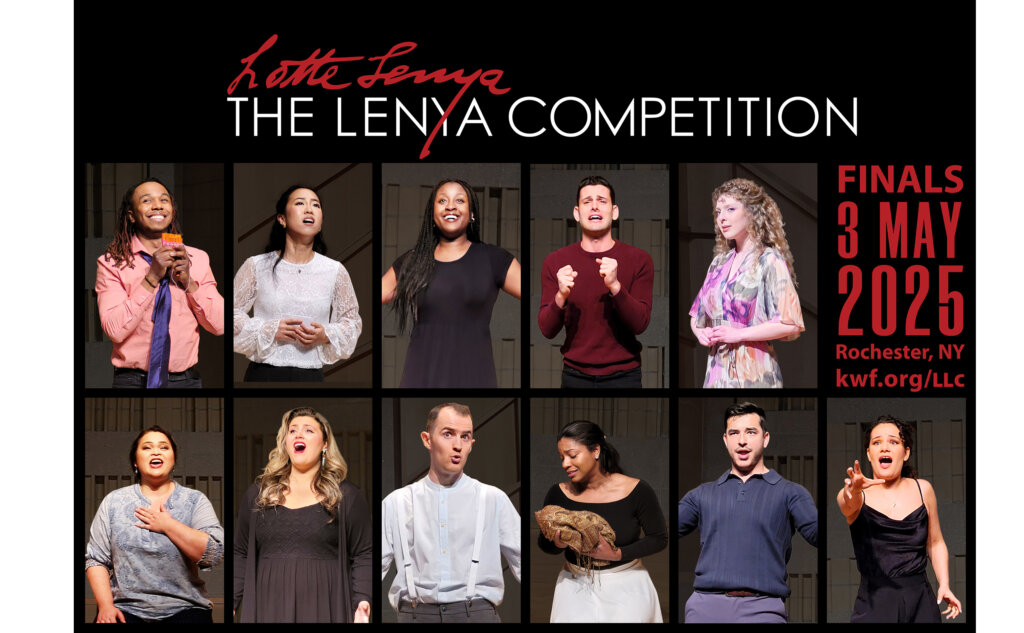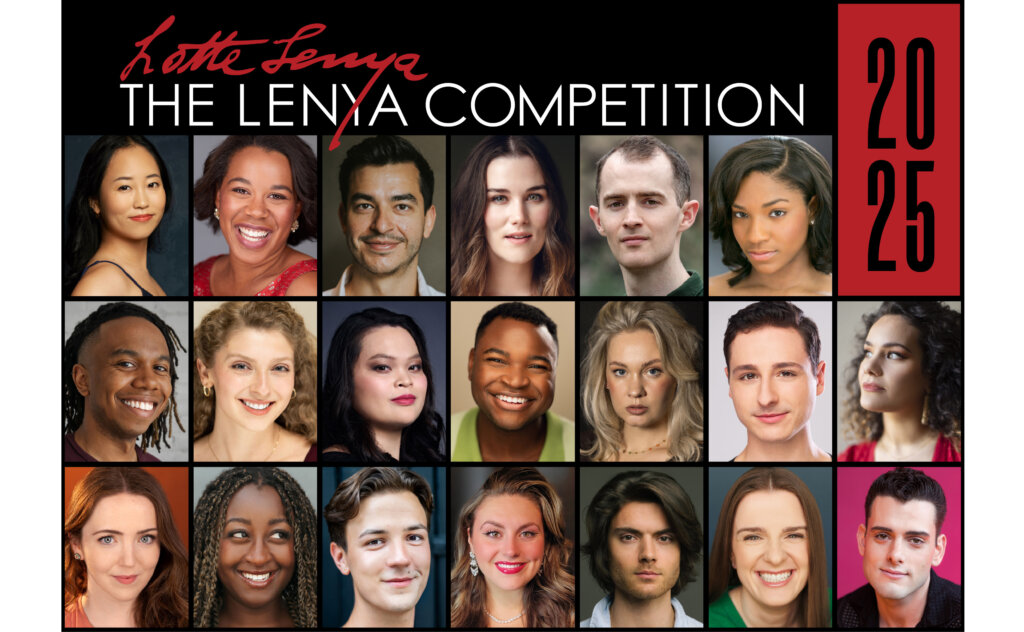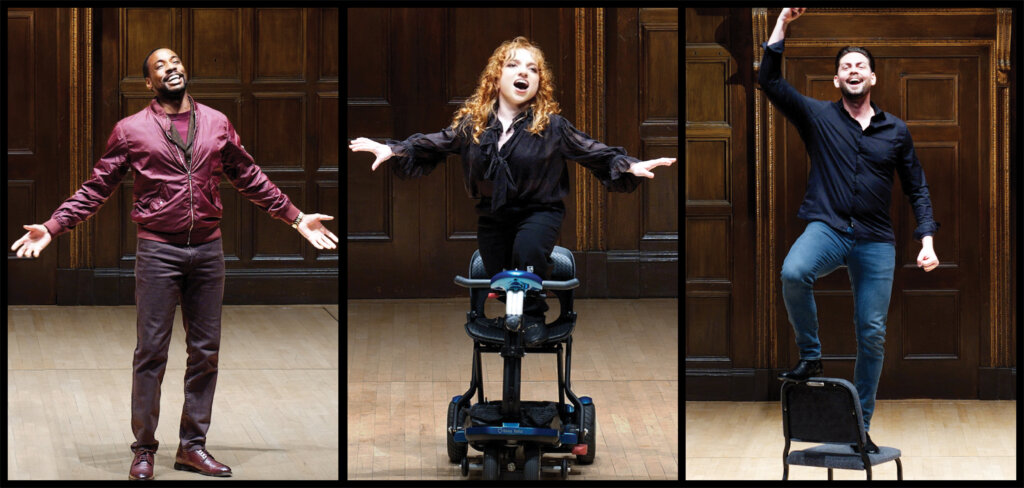Update: The evening concert of the 2017 Lenya Competition finals will be streamed live direct from Kilbourn Hall in Rochester! The concert begins at 8:00 p.m. EDT on 22 April; point your browser to http://www.esm.rochester.edu/live/kilbourn before the concert to stream it (no password required).
At the first Lotte Lenya Competition in 1998, the contestants were all voice students of the Eastman School of Music, and the top prize was just $1,000. This year 266 contestants from 17 countries and 31 states submitted video auditions. In March, 32 semifinalists competed and coached in Manhattan. On 22 April, fourteen finalists spanning the boundaries of eligibility from 19 to 32 compete for a top prize of $20,000, raised from $15,000 for the first time. This year’s prizes, recognizing and nurturing young singing actors, will bring the total awarded after twenty competitions to more than $850,000.
When I conceived the Competition in 1998 as a way to celebrate Lenya’s 100th birthday, as well as the arrival (on long-term loan) of the manuscripts of Weill’s German compositions at Eastman’s Sibley Music Library, I had only a faint glimmer of hope that it might someday grow into what it has become nineteen years later. Though strictly local that first year, with fewer than two dozen contestants, the Competition already encouraged idiomatic performances of a wide range of repertoire, and it was adjudicated by a distinguished panel of three, representing diverse expertise and viewpoints (a model that has remained unchanged): a conductor (Julius Rudel), a director (Mark Cuddy), and a versatile, world-class singer.
That singer is our Special Guest of Honor for the 20th Lenya Competition: Teresa Stratas has subsequently served on the judges’ panel for the remarkable total of ten final rounds, exactly half. And Stratas’s own legendary talent and career exemplify the values engendered by the Competition, as her repertory encompassed music theater in its widest sense: opera, operetta, American musical theater, and particularly the music of Kurt Weill. She made her debut at the Met in 1959 and was already an international star before she turned 25. At the Met alone, she sang 41 roles in 382 performances over three decades, including seven new productions mounted for her.
Stratas first sang Weill’s music in 1979, when she played Jenny in the Met premiere of Aufstieg und Fall der Stadt Mahagonny. In appreciation of her “dream Jenny,” Lenya gave Stratas a collection of unpublished material which she recorded in 1981 as The Unknown Kurt Weill, which garnered a fistful of awards. Then came Stratas Sings Weill (also released on Nonesuch), Peter Sellars’s film of Die sieben Todsünden, and September Songs: The Music of Kurt Weill. The Kurt Weill Foundation presented her with its Distinguished Achievement Award in Eastman Theatre in 1998 and elected her an honorary trustee in 2005.
Other career highlights include the world premiere production and recording of the three-act Lulu under Boulez in Paris, creating the leading roles in The Ghosts of Versailles and Rags (Tony nomination), and singing Julie in the landmark complete recording of Show Boat. She has made more than two dozen opera films, and won three Grammy Awards, an Emmy, a Gemini, a Drama Desk Award, and an Academy Award citation for the documentary Stratasphere. Stratas holds five honorary doctorates, including one bestowed by the University of Rochester at the celebration here in 1998. The Lenya Competition remains the only one Stratas has ever judged, and now, at Number 20, it has become almost as much hers as Lenya’s.
–Kim H. Kowalke, President & CEO, Kurt Weill Foundation for Music; Founder of the Lotte Lenya Competition
Features
Video interview with Kim H. Kowalke
Coverage of the Lenya Competition (Rochester Democrat & Chronicle)


